State and National Government
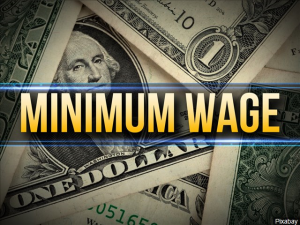 The Virginia Senate today voted down a bill to raise the state’s minimum wage to $15 an hour over the next three years. Supporters say it’s needed to help all working Virginians be able to make ends meet, but opponents say it would serve instead to reduce the number of entry-level jobs. WFIR’s Evan Jones has the story:
The Virginia Senate today voted down a bill to raise the state’s minimum wage to $15 an hour over the next three years. Supporters say it’s needed to help all working Virginians be able to make ends meet, but opponents say it would serve instead to reduce the number of entry-level jobs. WFIR’s Evan Jones has the story:
 RICHMOND, Va. (AP) — The General Assembly’s self-described socialist member is sponsoring legislation to repeal the state’s right-to-work law, which says employees can’t be forced to join a labor union.
RICHMOND, Va. (AP) — The General Assembly’s self-described socialist member is sponsoring legislation to repeal the state’s right-to-work law, which says employees can’t be forced to join a labor union.
Del. Lee Carter, a democratic socialist inspired by U.S. Sen. Bernie Sanders, has filed House Bill 1806, which could force workers in Virginia to become union members and pay union dues as a condition of their employment.
Virginia is among 27 right-to-work states — a fact that business leaders often point to with pride. Carter’s bill aims to change that.
“Repealing it is bigger than just the actual technical changes that it would make,” said Thomas McIntire, Carter’s legislative aide. “It sends a signal to workers in Virginia saying that your voice matters.”
In right-to-work states, a workplace where employees are represented by a union is considered an “open shop”: People can work there without joining the union, and they can cancel their union membership at any time.
Critics of right-to-work laws say this allows freeloading: Non-union employees don’t pay union dues, but they benefit from the collective bargaining agreements and higher salaries that the union negotiates.
Carter ran as a Democrat in winning the 50th House District seat representing Manassas and part of Prince William County in 2018. He wants to repeal the state law that says, “No person shall be required by an employer to become or remain a member of any labor union or labor organization as a condition of employment or continuation of employment by such employer.”
HB 1806 would allow “agency shops” or “union shops,” where all employees must pay the union either dues or a service fee.
“A collective bargaining agreement may include a provision establishing an agency shop or a union shop,” the bill says. “If such a provision is agreed to, the employer shall enforce it by deducting from the salary payments to members of the bargaining unit the dues required of membership in the labor union, or, for nonmembers thereof, a fee equivalent to such dues.”
McIntire said the fees would help the union provide better support to employees in the workplace.
Supporters of right-to-work laws say they are good for the economy.
States without such laws tend to have higher unemployment and a higher cost of living, said Scott Mayausky, commissioner of the revenue in Stafford County, Virginia. That’s because compulsory union membership drives up the cost of goods and services, he said.
In such situations, a company’s costs can increase — and that worries Mayausky the most.
“Statistically, if you look at a lot of the Rust Belt states that are big union states, those are the ones that have been struggling economically, and a lot of their companies are leaving,” Mayausky said.
Mayausky had two grandfathers who were coal miners, so he understands the good that unions can bring. But he believes this isn’t the time for repealing the right-to-work law in Virginia.
“We’re doing very well,” Mayausky said. “I don’t understand the push to change the right-to-work law when things seem to be headed in the right direction.”
According to the U.S. Bureau of Labor Statistics, Virginia has about 176,000 union members — approximately 4.6 percent of wage and salary workers in the state.
McIntire said it was important for Carter to file the bill, which is pending before the House Rules Committee.
“This is at the core of what Del. Carter stands for when it comes to worker rights,” McIntire said. “It’s important to get this in now as early as possible.”
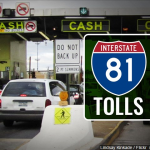 Opponents of plans to implement tolls on Interstate 81 in Virginia say doing so would be unconstitutional, and they indicate they are ready to sue if such a proposal is passed this year in Richmond. WFIR’s Evan Jones has more:
Opponents of plans to implement tolls on Interstate 81 in Virginia say doing so would be unconstitutional, and they indicate they are ready to sue if such a proposal is passed this year in Richmond. WFIR’s Evan Jones has more:
The Alliance for Toll-Free Interstates is leading the opposition, and Virginia Spokesperson Stephanie Kane appeared live Friday on WFIR. Here is the full conversation:
The Alliance has created a web site, www.keeptollsoff81.com.
WFIR will present other points of view in coming weeks as the General Assembly considers the proposals.
Here is the full Alliance for Toll-Free Interstates January 17 news release:
Richmond, VA – The Alliance for Toll-Free Interstates (ATFI) blasted Virginia Governor Ralph Northam’s plan to toll Interstate 81 in Virginia as details emerged that the plan is likely unlawful under the U.S. Constitution. In a letter sent to the Governor from the American Trucking Associations (ATA), a member of ATFI, ATA argues how allowing for an auto-only commuter pass along I-81 may create an impermissible burden on interstate commerce.
In a move that could signal their intention to sue, ATA lays out three ways in which the tolling plan is designed to favor in-state motorists at the expense of out-of-state interests:
- User fees will bear no relationship to use of the tolled roads
- Tolls on commercial vehicles will be excessive in relation to the benefits conferred
- The plan favors noncommercial vehicles over commercial vehicles, which power interstate commerce
ATA’s letter cited two court cases evaluating the constitutionality of a highway toll, Northwest Airlines v. Kent, 510 U.S. 355, 369 (1994) and Selevan v. N.Y. Thruway Auth., 584 F.3d 82, 98 (2d Cir. 2009). The U.S. Supreme Court has explained that, under the Commerce Clause, a transportation user fee is permissible only:
- “if it (1) is based on some fair approximation of use of the facilities,
- (2) is not excessive in relation to the benefits conferred, and
- (3) does not discriminate against interstate commerce.”
“We encourage you and the Assembly to think carefully about these issues before Virginia takes any further steps in the direction it appears to be heading, and to bear in mind that the auto-only annual pass option will be vulnerable to a legal challenge if it moves forward,” wrote Jennifer Hall, ATA General Counsel and Executive Vice President of Legal Affairs, in the letter to Governor Northam..
“Virginia has looked at tolling I-81 before and concluded that tolls on existing interstates are bad for motorists, bad for the economy and wildly unpopular,” said Stephanie Kane, spokesperson for ATFI. “Now Virginia policymakers are doubling down on a bad policy idea that is expensive, inefficient, and inequitable – and may doom the Commonwealth to a costly lawsuit that adds years onto the timeline to improve I-81.”
Two lawsuits related to the constitutionality of highway tolls have been filed in the last six months. In July 2018, ATA filed a suit with co-plaintiffs Cumberland Farms, M&M Transport Services and New England Motor Freight against the director of the Rhode Island Department of Transportation based on the claim that the Rhode Island tolls violate the Commerce Clause of the U.S. Constitution, by imposing “discriminatory and disproportionate burdens on out-of-state operators and on truckers who are operating in interstate commerce.” Last week, the national Owner-Operator Independent Drivers Association on Wednesday filed a lawsuit against Indiana Governor Eric Holcomb, the Indiana Finance Authority, the Indiana Toll Road Concession Company, and the commissioner of the Indiana Department of Transportation challenging the increased tolls on heavy vehicles on the Indiana Toll Road that was implemented on October 5, 2018.
“Governor Northam and the General Assembly should abandon the call for risky new state tolling pilots and instead focus on real solutions that improve our surface infrastructure and citizens will support,” added Kane, who noted more than 2,400 letters opposing tolling I-81 had been sent by Virginia residents to Governor Northam and state legislators in the first 6 days since the group launched the “Keep Tolls Off 81” campaign at www.keeptollsoff81.com.
 RICHMOND, Va. (AP) — Tobacco-friendly Virginia, where the early economy was powered by the leafy plant and the industry continues to hold great sway, is preparing to put new limits on who can buy tobacco products.
RICHMOND, Va. (AP) — Tobacco-friendly Virginia, where the early economy was powered by the leafy plant and the industry continues to hold great sway, is preparing to put new limits on who can buy tobacco products.
Citing the rapid growth of teenage vaping, GOP leaders in the majority-Republican General Assembly announced Thursday they are backing legislation to raise the age limit on buying tobacco products from 18 to 21. Virginia-based Altria, one of the biggest tobacco companies in the world, said it supports the proposal.
If successful, Virginia would join several other states that have raised the age limit of purchasing tobacco products. While traditional tobacco use among teenagers has been declining, state Republicans said they’ve grown increasingly concerned about a sharp increase in teenage vaping.
“Obtaining vaping products from friends and classmates who are already 18 years old is just too easy for the younger kids. Raising the age will have a positive effect on our schools,” said GOP Speaker Kirk Cox, a retired school teacher.
Democratic Gov. Ralph Northam has not indicated whether he supports the proposal, but the pediatric neurologist has backed anti-smoking efforts in the past.
The surprise announcement by Republicans is part of a wider effort to broaden their appeal to suburban voters ahead of legislative elections later this year.
Democrats have made major gains in Virginia in the last two years as suburban voters unhappy with President Donald Trump have fled the GOP. Republicans have made a concerted effort during this year’s legislative session to win back those voters with several kitchen-table proposals, including improving school safety and expanding insurance coverage for children for autism.
Altria could also be looking to garner goodwill among lawmakers by supporting an effort that could hurt its profits but diffuse a future push for stricter laws on vaping and other tobacco products. The Marlboro maker said last month that it will spend $13 billion to buy a share of Juul, a popular vape company that’s come under fire for its popularity among teenagers.
E-cigarettes and other vaping devices have been sold in the U.S. since 2007 and have grown into a $6.6 billion business. Vaping devices heat a flavored nicotine solution into an inhalable vapor. They have been pitched to adult smokers as a less harmful alternative to cigarettes, though there’s been little research on the long-term health effects.
Flavored e-cigarettes have been blamed for a recent increase in teen vaping rates, including among middle schoolers. A recent nationwide study found twice as many high school students used nicotine-tinged electronic cigarettes last year compared with the year before.
The increase has set health officials scrambling. Food and Drug Administration Commissioner Scott Gottlieb recently pledged to try to tighten rules governing the sale of most flavored versions of e-cigarettes.
Altria spokesman David Sutton said the company supports quick action to stop underage tobacco use.
“The best approach to achieving this goal is simple: Raise the minimum age for purchasing tobacco products to 21,” he said.
 A State Senate committee has essentially killed a bill championed by Roanoke Senator John Edwards and supported in person by Roanoke’s city treasurer. At issue is how cities can collect unpaid assessments — and the amount of money that comes in. More from WFIR’s Evan Jones.
A State Senate committee has essentially killed a bill championed by Roanoke Senator John Edwards and supported in person by Roanoke’s city treasurer. At issue is how cities can collect unpaid assessments — and the amount of money that comes in. More from WFIR’s Evan Jones.
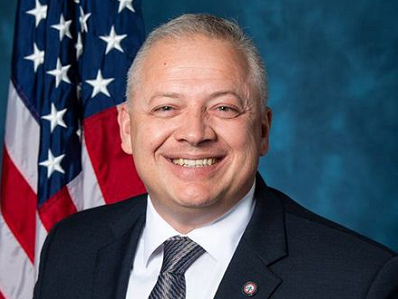
Rep. Denver Riggleman
Now in day 26, there are no signs that the now longest government shutdown in U.S. history will end any time soon. One local area Congressman says Democrats are rejecting border security funding for purely political reasons. WFIR’s Ian Price has the latest:
 The Virginia State Senate has passed the Equal Rights Amendment by a bipartisan 26 to 14 vote. The bill now moves over to the House of Delegates, where Democratic Leader Delegate Eileen Filler-Corn said today “we fully hope and expect to follow their example.” If signed into law Virginia would become the 38th state to ratify the ERA (the threshold required) – although its official ratification deadline has long since passed at the federal level.
The Virginia State Senate has passed the Equal Rights Amendment by a bipartisan 26 to 14 vote. The bill now moves over to the House of Delegates, where Democratic Leader Delegate Eileen Filler-Corn said today “we fully hope and expect to follow their example.” If signed into law Virginia would become the 38th state to ratify the ERA (the threshold required) – although its official ratification deadline has long since passed at the federal level.








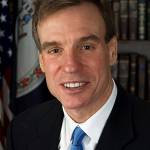
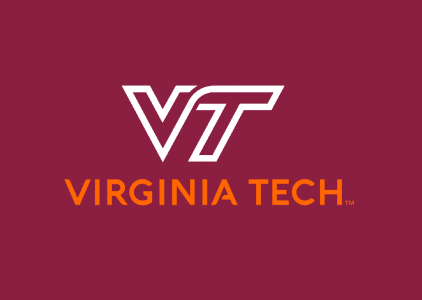 Federal employees are not the only ones feeling the effects of the partial government shutdown. Researchers at Virginia Tech are also dealing with funding issues, as WFIR’s Ian Price reports:
Federal employees are not the only ones feeling the effects of the partial government shutdown. Researchers at Virginia Tech are also dealing with funding issues, as WFIR’s Ian Price reports: